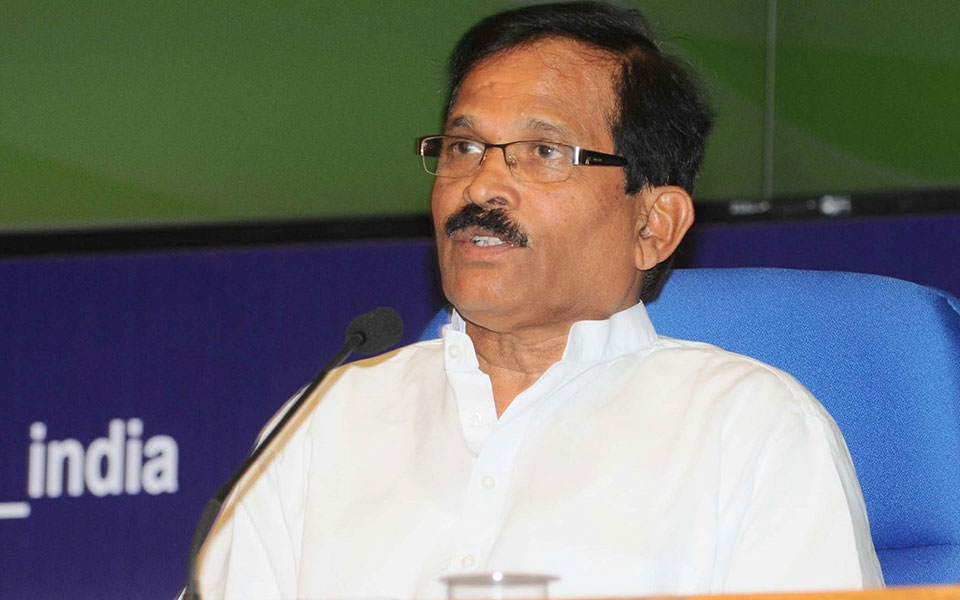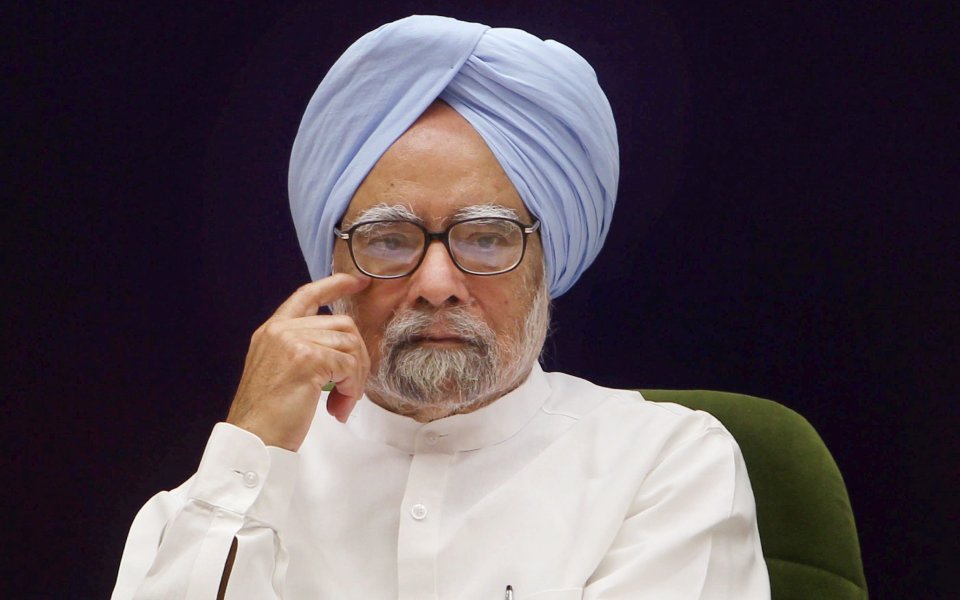Panaji, May 26: The Central government will soon file a revision petition in the Supreme Court seeking direction to resume mining operations in Goa, which stands banned following directions from the apex court in March this year, a Union Minister said on Saturday.
Talking to reporters at the Bharatiya Janata Party (BJP)'s state headquarters here, Union Minister of State for AYUSH Shripad Naik said an ordinance could also be issued by the Centre to pave the way for resumption of mining activity in the state.
"We are working hard to resume mining in Goa. Work is on fast-track. The state government is in touch with the Centre over the issue," Naik told the media.
"The (option of) ordinance is also there. It is a matter of livelihood of our people. We have convinced the Centre about our case."
On March 15 this year, the Supreme Court had banned all mining activity, including transportation of iron ore from Goa's 88 mining leases, and directed the state government to re-issue the leases.
Mining was first banned in 2012 following a series of ban orders from the state government, central government and the Supreme Court, after a Rs 35,000-crore illegal mining was revealed by a judicial commission.
The ban was later lifted in 2014, but the apex court while reprimanding the state government over hurried renewal of mining leases in favour of same mining companies linked to the scam, scrapped all the 88 operational mining leases, and directed the state government to issue the leases afresh as per the Mines and Minerals Development and Regulation Act, which mandates auctioning of major mineral resources.
The mining ban has resulted in a lot of pressure on the ruling parties, with locals residing in the mining belt -- which is spread over nearly one-third of the 40 assembly constituencies -- urging their elected representatives to resume operations at the earliest.
Earlier this week, Vijai Sardesai, Town and Country Planning Minister in the BJP-led coalition government and president of the Goa Forward Party, issued a warning to the BJP that his party would rethink supporting the BJP in the forthcoming Lok Sabha elections if the mining crisis was not resolved at the earliest.
The BJP has 14 MLAs in the 40-member Goa Legislative Assembly and currently occupies the treasury benches with the help of three MLAs each from Goa Forward Party and the Maharashtrawadi Gomantak Party, as well as three Independent MLAs.
Let the Truth be known. If you read VB and like VB, please be a VB Supporter and Help us deliver the Truth to one and all.
Beijing, Dec 26: China has approved the construction of the world's largest dam, stated to be the planet's biggest infra project costing USD 137 billion, on the Brahmaputra River in Tibet close to the Indian border, raising concerns in riparian states - India and Bangladesh.
The Chinese government has approved the construction of a hydropower project in the lower reaches of the Yarlung Zangbo River, the Tibetan name for the Brahmaputra, according to an official statement quoted by state-run Xinhua news agency on Wednesday.
The dam is to be built at a huge gorge in the Himalayan reaches where the Brahmaputra river makes a huge U-turn to flow into Arunachal Pradesh and then to Bangladesh.
The total investment in the dam could exceed one trillion yuan (USD 137 billion), which would dwarf any other single infrastructure project on the planet including China’s own Three Gorges Dam, regarded as the largest in the world, the Hong Kong-based South China Morning Post reported on Thursday.
China has already Operationalised the USD 1.5 billion Zam Hydropower Station, the largest in Tibet in 2015.
The Brahmaputra dam was part of the 14th Five-Year Plan (2021-2025) and National Economic and Social Development and the Long-Range Objectives Through the Year 2035 adopted by Plenum, a key policy body of the ruling Communist Party of China (CPC) in 2020.
Concerns arose in India as the dam besides empowering China to control the water flow, the size and scale of it could also enable Beijing to release large amounts of water flooding border areas in times of hostilities.
India too is building a dam over Brahmaputra in Arunachal Pradesh.
India and China established the Expert Level Mechanism (ELM) in 2006 to discuss various issues related to trans-border rivers under which China provides India with hydrological information on the Brahmaputra river and Sutlej river during the flood seasons.
Data sharing of trans-border rivers figured in the talks between India, China Special Representatives (SRs) for border question, NSA Ajit Doval and Chinese Foreign Minister Wang Yi, held here on December 18.
The SRs “provided positive directions for cross-border cooperation and exchanges" including data sharing on trans-border rivers, a statement by the Ministry of External Affairs said.
The Brahmaputra Dam presents enormous engineering challenges as the project site is located along a tectonic plate boundary where earthquakes occur.
The Tibetan plateau, regarded as the roof of the world, frequently experiences earthquakes as it is located over the tectonic plates.
The official statement on Wednesday sought to allay concerns about earthquakes, saying that the hydropower project is safe and prioritises ecological protection.
Through extensive geological explorations and technical advancements, a solid foundation has been laid for the science-based, secure, and high-quality development of the project, it said.
The Brahmaputra flows across the Tibetan Plateau, carving out the deepest canyon on Earth and covering a staggering vertical difference of 25,154 feet before reaching India, the Post report said.
The dam will be built in one of the rainiest parts of mainland China bringing bountiful flows of water.
According to a 2023 report, the hydropower station is expected to generate more than 300 billion kWh of electricity each year – enough to meet the annual needs of over 300 million people.
In 2020, Yan Zhiyong, then chairman of the state-owned Power Construction Corporation of China, was quoted in the media as saying the location on the Yarlung Tsangpo was one of the most hydropower-rich areas in the world.
“The lower reaches area features a vertical drop of 2,000 metres over a 50km distance, representing nearly 70 million kilowatts of resources that could be developed – that is more than three Three Gorges Dams with an installed capacity of 22.5 million kilowatts,” the Post quoted him as saying.
To harness the hydropower potential of the river, four to six 20km-long tunnels must be drilled through the Namcha Barwa mountain to divert half of the river’s flow at about 2,000 cubic metres per second, according to the report.
Yan said that the hydropower exploitation of the Yarlung Zangbo River downstream is more than a hydropower project.
It is also meaningful for the environment, national security, living standards, energy and international cooperation.
"It is a project for national security, including water resources and domestic security," he said, noting that the project will also smooth cooperation with South Asia.
The hydropower station could generate income of 20 billion yuan (USD three billion) annually for the Tibet Autonomous Region, he said.
An official statement on Wednesday defended the project, saying it will play a positive role in accelerating the country's efforts to create a new development pattern and pursue high-quality development.
It is also of great importance to advancing the country's strategy for carbon peaking and carbon neutrality and to coping with global climate change, it said.
The hydropower project is a green project aimed at promoting low-carbon development. By harnessing the abundant hydropower resources of the Yarlung Zangbo River, the project will also spur the development of solar and wind energy resources in surrounding areas, thus creating a clean energy base featuring a complementary mix of hydro, wind and solar power, it said.
It will directly stimulate the rapid growth of such industries as engineering, logistics and trade services, and create new jobs, it said.
Once completed, the project will further improve infrastructures of electricity, water conservancy and transportation. It will strengthen the synergy of development between Tibet and other regions, it said.





